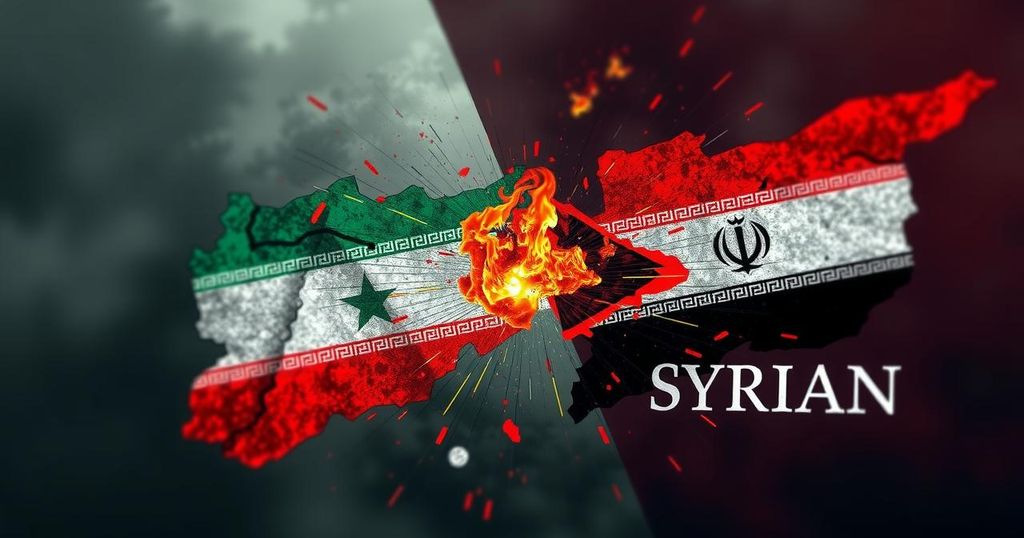Russia and Iran’s support for the Assad regime in Syria is crucial for maintaining their regional influence. Recent escalations, including Russian airstrikes against advancing rebel forces, highlight the strategic importance of Syria, with access to the Mediterranean serving as a key concern for Moscow. For Tehran, Syria is vital for sustaining its links with Hezbollah and extending its influence in the region. The conflict’s outcome directly impacts both nations’ military strategies and credibility on the global stage, particularly against adversaries such as the United States and Israel.
The Syrian conflict remains a pivotal issue for both Russia and Iran, who have staunchly supported President Bashar Assad’s regime. Recent airstrikes conducted by Russia against advancing rebel forces underscore the conflict’s escalating nature, particularly following the rebel seizure of Aleppo. For Russia, Syria is vital for maintaining military bases that facilitate its naval access to the Mediterranean, serving as a strategic foothold against U.S. influence in the region. The loss of Syria would significantly jeopardize Russia’s military ambitions in Africa and bolster perceptions of Russian unreliability in global affairs.
Similarly, Iran’s involvement in Syria is crucial for sustaining its proxy network, particularly its support for Hezbollah. The conflict offers Iran a land corridor linking Tehran to Beirut, enhancing its operational capabilities against adversaries, especially Israel. Despite mounting challenges from Israeli forces, Iran views its commitment to Assad’s regime as an opportunity to reaffirm its regional influence. The historical ties between Russia and Syria date back to the Cold War, with direct military involvement increasing dramatically since 2015, creating deep interdependencies in their respective goals.
As the Syrian civil war approaches its thirteenth year, the outcome remains uncertain, yet the implications for both Moscow and Tehran are profound. The current state of affairs reveals the vulnerabilities of both nations as they navigate complex regional dynamics, emphasizing the critical importance of Syria in their geopolitical strategies.
The Syrian civil war, which began in 2011, has drawn significant interest from global powers, notably Russia and Iran, both of whom have provided unwavering support to the Assad regime. Russia’s military presence has included the construction of key bases in Syria, pivotal for accessing the Mediterranean and exercising influence in the Middle East. Simultaneously, Iran has utilized Syria to extend its network of militia groups, particularly to bolster Hezbollah. As conflicts in Ukraine and tensions with Israel have diverted resources and attention, Syria’s significance remains profound for both nations, with losing the conflict potentially undermining their regional foothold.
The conflict in Syria is essential for both Russia and Iran, providing them with strategic military and political advantages. For Russia, control over Syrian territory correlates with access to the Mediterranean and the foundational support for its broader Middle Eastern ambitions. Concurrently, for Iran, maintaining influence in Syria is crucial for supporting its proxies, particularly Hezbollah, and reestablishing its regional power. As the situation continues to evolve, the implications for both nations hinge critically on the outcome of the ongoing conflict.
Original Source: www.businessinsider.com






